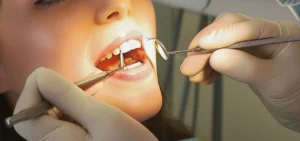When it comes to safeguarding your smile, few measures are as effective as wearing a mouthguard. Whether you’re an athlete, a nighttime teeth grinder, or someone seeking protection during certain activities, a mouthguard can be your smile’s best friend. In this comprehensive guide, we’ll explore everything you need to know about mouthguards, including their composition, cost, purpose, and significance in preserving oral health.

Understanding Mouthguards:
A mouthguard, also known as a mouth protector or sports guard, is a protective device worn over the teeth to reduce the risk of injury during physical activities or to prevent damage caused by bruxism (teeth grinding). Mouthguards are typically made from flexible materials such as thermoplastic or laminate, which conform to the shape of the teeth and provide cushioning and support.
Types of Mouthguards:
Stock Mouthguards:
Stock mouthguards are pre-formed and come in standard sizes, typically small, medium, and large. While they are readily available and inexpensive, they often provide a poor fit and minimal protection, making them less effective than custom-fitted mouthguards.
Boil-and-Bite Mouthguards:
Boil-and-bite mouthguards are made from thermoplastic material that softens when heated in boiling water. Once softened, the mouthguard is placed in the mouth and molded around the teeth by biting down, creating a custom fit. While more affordable than custom-fitted mouthguards, boil-and-bite mouthguards offer better protection and comfort than stock mouthguards.
Custom-Fitted Mouthguards:
Custom-fitted mouthguards are individually designed and fabricated by a dentist based on impressions of the patient’s teeth. These mouthguards offer the best fit, comfort, and protection, as they are tailored to the unique contours of the wearer’s mouth. While custom-fitted mouthguards may be more expensive than stock or boil-and-bite mouthguards, they provide superior performance and durability.

The Cost of Mouthguards:
The cost of a mouthguard can vary depending on the type, material, and customization options. Stock mouthguards are typically the least expensive option, ranging from $5 to $20, while boil-and-bite mouthguards may cost between $10 and $50. Custom-fitted mouthguards are the most expensive option, with prices ranging from $100 to $500 or more, depending on the complexity of the design and materials used.
The Purpose of Mouthguards:
Mouthguards serve several important purposes, including:
Protection:
Mouthguards help to protect the teeth, gums, lips, tongue, and jaw from impact injuries during physical activities such as sports, martial arts, and recreational activities.
Prevention of Dental Injuries:
Mouthguards help to prevent dental injuries such as chipped or broken teeth, knocked-out teeth, fractured jaws, and soft tissue injuries.
Treatment of Bruxism:
Mouthguards can also be used to treat bruxism, a condition characterized by teeth grinding or clenching during sleep. By cushioning the teeth and reducing the force of grinding, mouthguards help to minimize wear and tear on the teeth and alleviate symptoms such as jaw pain and headaches.

The Importance of Wearing a Mouthguard:
Wearing a mouthguard is crucial for protecting your smile and reducing the risk of dental injuries. Whether you’re engaging in contact sports, participating in recreational activities, or struggling with bruxism, a mouthguard can provide the necessary cushioning and support to keep your teeth and mouth safe from harm.
Additional Considerations:
Proper Care:
To prolong the lifespan of your mouthguard and maintain its effectiveness, it’s essential to clean it regularly with soap and water, store it in a clean, ventilated container, and avoid exposing it to high temperatures or direct sunlight.
Replacement:
Over time, mouthguards may become worn, damaged, or less effective due to normal wear and tear. It’s important to inspect your mouthguard regularly and replace it as needed to ensure optimal protection.
Professional Guidance:
For the best results, consult with a dentist to determine the most appropriate type of mouthguard for your needs and receive personalized recommendations on fitting, usage, and maintenance.
In conclusion, wearing a mouthguard is a simple yet effective way to protect your smile and preserve your oral health. Whether you’re an athlete, a night grinder, or someone looking for extra protection during certain activities, investing in a quality mouthguard can make all the difference in safeguarding your teeth and mouth from injury. For personalized advice on selecting and fitting a mouthguard, schedule a consultation with Dr. Veners today. Your smile deserves the best protection!






